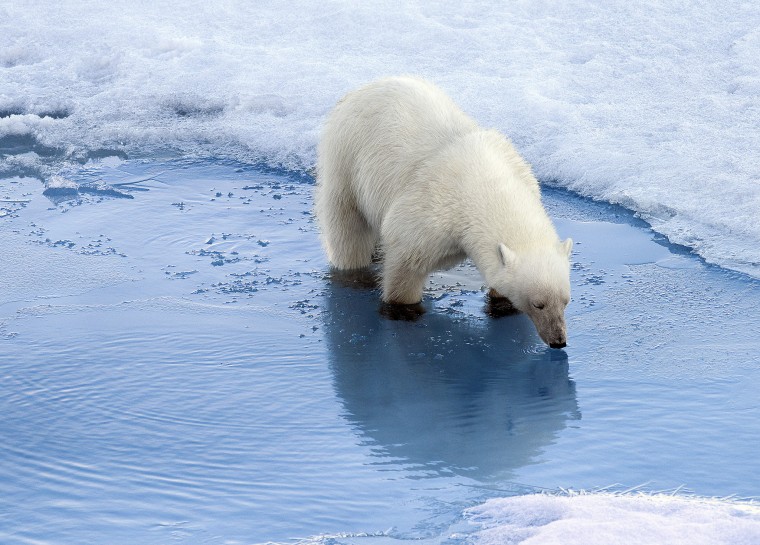Study Suggests That a Cleaner Atmosphere May Cause Faster Arctic Ice Melting

Image: Christopher Michel
We have all been pitching in to clean up the environment which we have, until relatively recently in human history, thought of mostly as “that place where we can dump whatever.” Whether this means recycling those empty cans, driving an electric car, or setting up laws for policing car emissions (we’re looking at you, VW), we have all been trying like crazy to make sure that we don’t live in a world where the sky is grey and everyone dies of lung cancer.
And yet, there is a possibility that some of these efforts might not be in the best interests of the increasingly-stranded polar bears up in the north. Environment Canada researchers have found that, in reducing emissions (sulfur dioxide in particular), we may have started exposing the polar ice to more solar heat, causing even greater sea ice melt–about 400,000 square miles more ice melt, or about 25-40% of the expected seasonal melt, depending on future greenhouse gas emissions.
The researchers were quick, however, to point out that this does not in any way mean we should all start burning vats of petroleum. Nathan Gillett, one of the study’s research scientists and manager of the Canadian Centre for Climate Modelling and Analysis, said they want to avoid the interpretation that we should stop trying to clean up the air, as removing pollutants like sulfur dioxide is important to protect people and the environment. The researchers merely wanted to point out that there is another side to this picture.
“We’re not trying to weigh costs and benefits of sulfur dioxide here,” Gillett said.
The scientists want to avoid this this for a good reason—sulfur dioxide and other pollutants put out by the burning of fossil fuels do have the potential to reflect light away from Earth, but other aerosols, such as black carbon, can speed the warming of polar ice, making projects to lower the temperature by adding aerosols to the atmosphere (mostly the concepts are related to volcanoes, which can cause cooling by blocking sunlight), a risky proposition that could have the opposite of the intended effect.
So, what the study is saying is that, by working to counteract air pollution (and so prevent some of those lung cancer deaths), we are inadvertently causing global warming to speed up.
News Source: Alaska Dispatch News

The News Wheel is a digital auto magazine providing readers with a fresh perspective on the latest car news. We’re located in the heart of America (Dayton, Ohio) and our goal is to deliver an entertaining and informative perspective on what’s trending in the automotive world. See more articles from The News Wheel.

